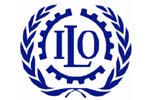CONSIDERS LABOUR SITUATION IN MYANMAR AND BELARUS, AS WELL AS GLOBALIZATION
GENEVA (ILO News), Friday 31, March 2006 − The Governing Body of the International Labour Office (ILO) concluded its 295th session here following discussions by tripartite delegates on issues ranging from respect of basic labour rights in Myanmar, Belarus, Colombia and other countries, to issues pertaining to globalization and migration.
Addressing the Working Party on Monday, 27 March, Mr. Louis Michel, European Commissioner for Development and Humanitarian Aid said "it is not work which is lacking but the financial resources to promote it". The Commissioner called for closer cooperation between the ILO and the European Union to promote "decent work for all".
The Governing Body requested the Director-General to begin the preparatory work for the promotion of the Maritime Labour Convention, 2006. The Convention which was adopted by a special maritime session of the International Labour Conference in February 2006 provides a comprehensive labour charter for the world's 1.2 million seafarers and establishes a socio-economic floor to global competition in the maritime sector that handles 90 per cent of the world's trade.
The Governing Body meeting also considered ILO activities in the field of employment promotion and social protection. As a follow-up to the Resolution concerning youth employment adopted by the 93rd session of the International Labour Conference in June 2005, the Governing Body examined plans for ILO action on youth employment.
The Governing Body considered the question of the observance by the Government of Myanmar of the Forced Labour Convention, 1930 (No. 29). It expressed its profound concern at the continued lack of any meaningful progress towards abolishing forced labour. It was also concerned that persons who had complained about the use of forced labour were being prosecuted and asked for their immediate release. The Governing Body decided that the International Labour Conference this year would review further action to be taken to effectively secure the compliance by Myanmar with this convention as well as ways to ensure that no action would be taken against persons or their representatives who complained about forced labour. The GB also urged that all remaining possibilities to resolve the issue be pursued.
Migration
The Governing Body's Committee on Sectoral and Technical Meetings and Related Issues recommended that the GB take note of the Multilateral Framework on Labour Migration and authorize the Director-General to publish it. The Multilateral Framework, which is part of a plan of action for migrant workers agreed by constituents at the International Labour Conference in 2004, was adopted by a Tripartite Meeting of Experts held in Geneva on 31 October-2 November 2005.
The Framework includes 15 principles under nine sections, which relate, among others, to decent work, means for international cooperation, the protection of migrant workers, management of labour migration, social integration and inclusion, and labour migration and development. Under each principle, guidelines have been elaborated to help put them into practice. There are two annexes to the Framework. Annex I includes a list of international labour instruments relating to migrant workers referred to in the Framework. Annex II is a compilation of examples of best practices in labour migration policies drawn from both countries of origin and destination. The compilation would be periodically updated to take account of new policies and programmes.
The framework is one of the seven elements of the plan of action, being carried out at present. In the context the plan of the action, the Office will promote the utilization of the framework in the formulation and implementation of labour migration policies.
Freedom of association
The Governing Body also approved the 340th and 341st reports of the ILO Committee on Freedom of Association. At its March meeting, the Committee examined 37 cases. Altogether there are currently 122 cases before the Committee. The Committee drew special attention to the cases of Belarus, Colombia, Myanmar and Nepal.
In the case of Belarus, the Committee examined measures taken by the government to implement the recommendations of the Commission of Inquiry set up by the ILO in 2004 taking note of the report of a mission to the country in January 2006.
The Committee expressed its deep concern that, rather than making good faith efforts to implement the recommendations of the Commission of Inquiry, the Government was on a path to eliminating all remnants of an independent trade union in Belarus, apparently hoping that in this way there in effect would be no further sources of complaint.
The Committee therefore reiterated its previous recommendations and urged the Government in the strongest of terms to take appropriate and concrete measures immediately so as to ensure that workers may form and join organizations outside the Federation of Trade Unions of Belarus (FPB) freely and without pressure or intimidation on the part of enterprise management or the public authorities.
As regards the recent initiative to draft a new Trade Union Law, the Committee expected the government to transmit any new drafts of the Law to the ILO for advice in terms of their conformity with international labour standards and the recommendations of the Commission of Inquiry before placing them before the Parliament for adoption.
Acknowledging the efforts made by the Government of Colombia to improve protection for trade union officials and to move the investigations of the cases forward, the Committee urged the Government to take all possible measures to put an end to the acts of violence against trade union officials and to continue vigorously the investigations that have already begun.
The Committee also requested the Government to keep it informed of the progress made by the specialized sub-unit within the National Public Prosecutor's Office which deals with cases of human rights violations involving trade unionists, as well as the entry into force of the Law on Justice and Peace and any impact that this Law might have on the various cases of murder and violence that are pending.
It also urged that consideration be given to the possibility of setting up an ILO office in Colombia in order to facilitate dialogue between the Government, the social partners and the Committee on Freedom of Association on the steps to be taken to continue to combat and ultimately eliminate the existing situation of impunity, as well as to ensure more effective implementation of freedom of association.
In the case of Myanmar, the Committee once again urged the Government to enact legislation guaranteeing freedom of association to all workers and employers and to explicitly protect workers' and employers' organizations from any interference by the authorities, including the army.
The Committee also urged the Government once more to institute an independent inquiry into the alleged murder of Saw Mya Than, to ensure the immediate release of Myo Aung Thant from prison, and to refrain from all acts of anti-union discrimination against seafarers who engage in trade union action.
The Committee once again reminded the Government that it may avail itself of the technical assistance of the Office for the realization of concrete steps towards ensuring respect for freedom of association in law and in practice.
The Committee also considered alleged violations of trade union rights in Nepal after the February 2005 state of emergency, leading to a climate of fear, which has forced many of the members, activists and leaders of the Nepali trade union movement to go into exile.
The allegations also concerned arrests of several trade union leaders, unwarranted searches of trade union offices, the suspension of all public sector unions, the banning of the activities of the Nepal Government Employees' Organization (NEGEO) through an amendment to the Civil Service Act and acts of harassment and intimidation against teachers' unions.
The Committee requested the Government to carry out an independent inquiry into the allegations of ill-treatment of detainees, arrest and threats of arrest, and if the allegations of continued threats of arrest are confirmed, to take steps to ensure that trade union leaders may freely exercise their trade union rights.
Finally, the Committee requested the Government to examine the possibility of a direct contacts mission to the country in order to promote the full implementation of freedom of association.
* * *
The Governing Body is the executive body of the International Labour Office (the Office is the secretariat of the Organization). It meets three times a year, in March, June and November and takes decisions on ILO policy, the agenda of the International Labour Conference and the draft Programme and Budget of the Organization for submission to the Conference.
It is composed of 56 titular members (28 Governments, 14 Employers and 14 Workers) and 66 deputy members (28 Governments, 19 Employers and 19 Workers). Ten of the titular government seats are permanently held by States of chief industrial importance (Brazil, China, France, Germany, India, Italy, Japan, the Russian Federation, the United Kingdom and the United States). The other Government members are elected by the Conference every three years.
- 2026.03.18Six Sigma Green Belt képzés A KÉPZÉS CÉLJA: A tréning résztvevői megismerik a TQM-ben, mint menedzsmentrendszerben rejlő lehetőségeket. A tréning résztvevői gyakorlati jártasságra tesznek szert a 6 Sigma módszertan alkalmazásában, és képesek lesznek önállóan 6 Sigma projekteket vezetni a vállalatuknál.
Részletek
Jegyek
- 2026.03.26recruiTECH x HRTECH konferencia A recruiTECH x HRTECH konferencia HR vezetőknek, toborzóknak, toborzási vezetőknek, employer branding és L&D szakembereknek szól, akik a munkaerőpiaci kihívásokra már technológia-alapú, jövőálló megoldásokat keresnek, és hatékonyabb HR működésben gondolkodnak.
Részletek
Jegyek
- 2026.04.23BGE Állásbörze SPÓROLJ IDŐT ÉS ENERGIÁT! Érd el a BGE összes karának hallgatóit egyetlen nap alatt!
Részletek
Jegyek
- 2026.05.08Benchmarking képzés A képzés során a résztvevők megismerik a benchmarking alkalmazásában rejlő lehetőségeket és konkrét gyakorlati példákon és feladatokon keresztül sajátíthatják el a benchmarking alkalmazásához szükséges legfontosabb ismereteket és készségeket, amiket azután a saját szervezetüknél is képesek lesznek alkalmazni.
Részletek
Jegyek
Munkavállalónként közel 50 ezer forint kompenzációs támogatást vehetnek igénybe a Magyar Államkincstáron keresztül azok a vállalkozások, amelyek... Teljes cikk
Az elkövetőnek hivatalos személy elleni erőszak bűntette mellett zaklatás miatt is felelnie kell. Teljes cikk
A Központi Statisztikai Hivatal (KSH) legfrissebb adatai alapján 2025-ben is stabilan magas szinten maradt a 25–49 éves korú nők foglalkoztatási... Teljes cikk




 Egy életmentő szakma egy napja: Vészhelyzet Pittsburghben
Egy életmentő szakma egy napja: Vészhelyzet Pittsburghben